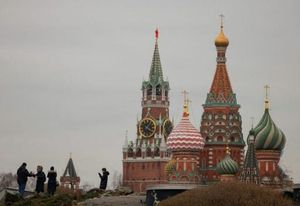The upcoming election for Eletrobras' new board of directors, set for Tuesday, April 29, 2025, has become a contentious affair, raising questions about the company's future, the extent of government influence, and the credibility of professional advisors in Brazil.
Marcelo Gasparino, a current board member, has found himself in the center of this turmoil after being excluded from the administration's slate of nominees. Feeling "forgotten," Gasparino has taken to LinkedIn to express his grievances, publicly criticizing the electoral process and specifically targeting Pedro Batista, a long-time shareholder and partner at the investment firm Radar.
Gasparino's discontent stems from the board's decision to not reappoint him, a move he perceives as a personal affront. He claims that Batista, who he describes as acting like an "executive counselor," has interfered in management decisions, leading to the dismissal of former CEO Wilson Ferreira Filho and other executives. "Pedro is competent, but he still has a long way to go to become a true counselor," Gasparino stated, emphasizing his own seniority in the boardroom.
On April 17, 2025, the Eletrobras board unanimously voted to extend the terms of the current directors for another two years, until May 2027. This decision has added fuel to the fire, with Gasparino's allies suggesting that his removal is more about internal politics than performance.
According to an assessment by Spencer Stuart, a consulting firm, Gasparino was noted for his contributions to governance and sustainability but was advised to "balance assertiveness" for better alignment with the board. Meanwhile, Korn Ferry’s survey indicated that most board members preferred Gasparino's replacement, suggesting a lack of confidence in his ability to collaborate effectively.
The backdrop to this election is a recent agreement between Eletrobras and the Brazilian government, finalized on March 26, 2025. This agreement allows the government to appoint three out of ten board members, with nominees including former ministers Silas Rondeau and Nelson Hubner, along with Maurício Tolmasquim. This arrangement has raised concerns about the potential for increased government influence over the company.
In the lead-up to the election, Eletrobras released a list of nominees that included six of the current nine board members, with Gasparino’s absence being particularly conspicuous. The slate features several seasoned professionals, including Vicente Falconi and Marisete Pereira, alongside newcomers Carlos Márcio Ferreira and Vanessa Claro Lopes.
Gasparino has not remained silent during this process. He has publicly questioned the independence of Marisete Pereira, who was appointed under former President Bolsonaro, suggesting that her ties may compromise her impartiality. In a recent LinkedIn post, Gasparino stated, "I was unaware that she was considered independent; the company’s website did not reflect this until I raised the issue."
This election has also seen Gasparino criticize the board's decision to increase its size from nine to ten members and reduce the number of independent counselors from six to five. He argued that these changes undermine the board’s integrity and create a potential conflict of interest.
Gasparino's criticisms culminated in a series of LinkedIn posts, where he outlined his campaign for re-election and the need for board members with a "owner's vision" to ensure that Eletrobras remains competitive with companies that have controlling shareholders. His posts, however, have not gone unnoticed by Eletrobras’ administration, which issued a statement on April 27, 2025, accusing him of disclosing confidential information and violating corporate governance norms.
Gasparino's social media activity has drawn mixed reactions. While some view his outspokenness as a necessary challenge to the status quo, others see it as unprofessional. In response to the backlash, Gasparino admitted, "I definitely went too far on LinkedIn. I could have approached it differently."
Interestingly, despite the tension, there have been reports that Gasparino and Batista were discussing a potential agreement to support government-backed candidates within the board. Gasparino vehemently denied these claims, stating, "There has never been any agreement with the government. It’s absurd."
As the election approaches, the stakes are high for both Gasparino and Batista. Each has their supporters, and the election will be conducted via a multiple-vote system, allowing shareholders to express preferences for their candidates. The outcome will not only determine the composition of the board but will also signal the direction Eletrobras will take in the coming years.
Gasparino's supporters, including notable investors like Juca Abdalla, have rallied behind him, while the administration has been actively promoting its own slate of candidates. The ISS and Glass Lewis, two influential proxy advisory firms, have recommended voting for Gasparino and his allies, which has prompted the Eletrobras administration to issue letters defending their nominees.
In the face of these developments, Gasparino remains resolute. "I’m here to ensure that Eletrobras can compete with the best. My vision is for a company that serves its shareholders effectively, not just the interests of a few," he stated, reflecting on his commitment to the company.
As the election looms, the tension between the board members, the influence of government, and the future of Eletrobras will be closely watched by both investors and industry analysts alike. With so much at stake, the coming days will be critical in shaping the future of one of Brazil's largest energy companies.




